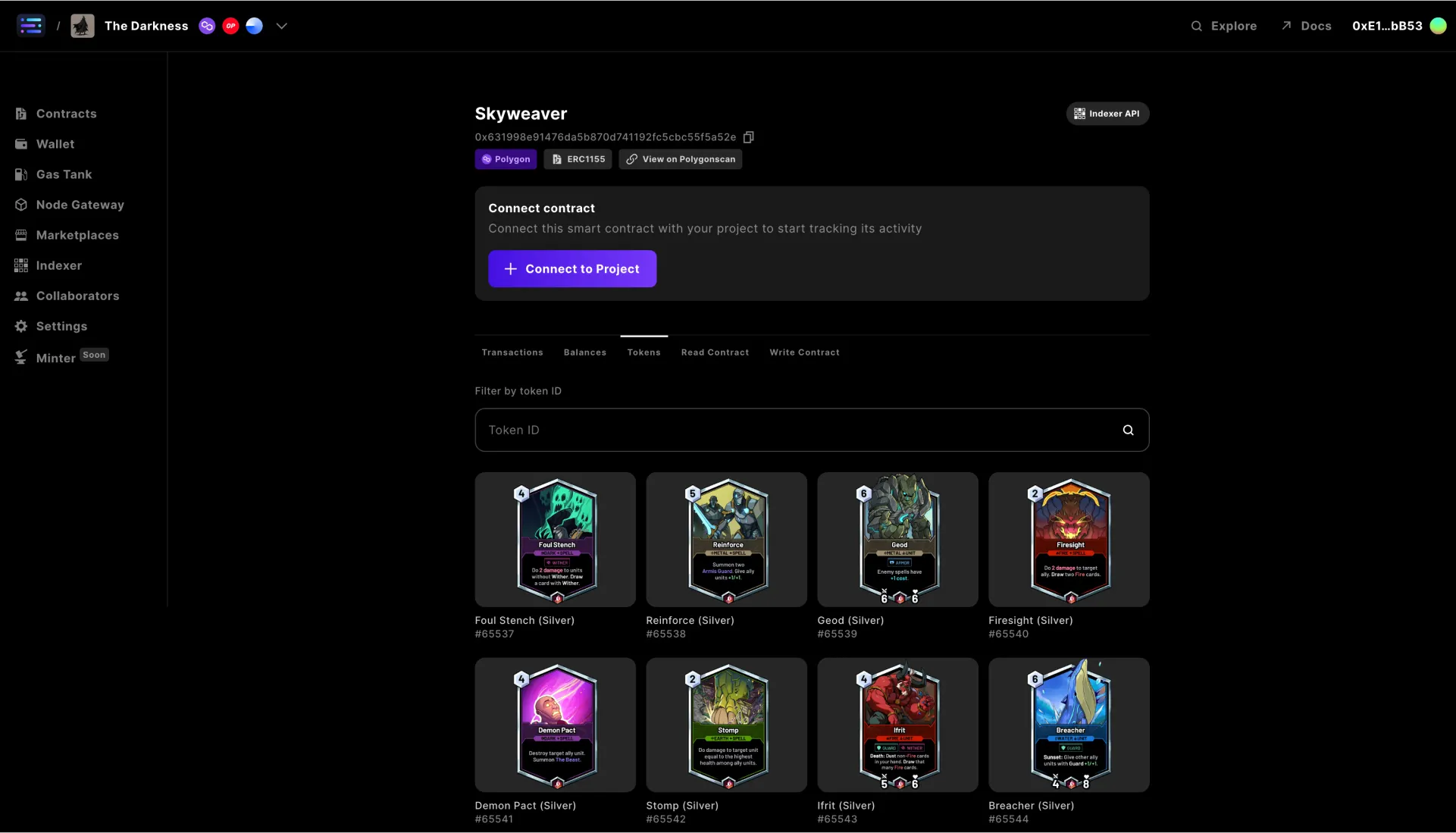Crypto development platform Sequence has launched Builder, a full-stack dashboard for game developers that it says will dramatically simplify the process of adding blockchain elements like NFTs to video games.
Sequence was created by crypto infrastructure and game development firm Horizon Blockchain Games, which previously launched the NFT trading card game Skyweaver and raised $40 million in funding from prominent video game publishers Ubisoft and Take-Two Interactive late last year.
“Blockchains are scaling, and they’re only going to continue to scale more,” Horizon CEO and co-founder Peter Kieltyka told Decrypt in an interview.
“But what they really need is the middleware infrastructure. And they need the applications, which are the games and the apps. And that’s what we do. That’s why we offer this batteries-included thing,” Kieltyka explained.
Sequence Builder allows game devs to import existing NFT collections to incorporate into their games, add a crypto wallet connection function, prepay for gas fees for in-game crypto transactions, and launch a white-label NFT marketplace, to name a few of its features. The builder will also add an NFT minting feature in the future, according to the company.
“We wanted to give an interface to people who didn’t have to know anything about the blockchain,” Kieltyka said of Sequence Builder’s user experience and design, which offers a minimalistic dark-mode aesthetic and a side navigation menu that clearly lists the products’ features.
Game developers can choose to set up wallets that require as little as a Twitch login connection or email address—an option that can significantly reduce the steps required to create a crypto wallet.

“Web3 development has been plagued by weak and fragmented tech that destroys the UX for players,” Sam Barberie, Horizon's Head of Strategy and Partnerships, said in a statement. “The bar for seamlessness in gaming is incredibly high, and Sequence Builder ensures that there’s never friction in any part of the player's journey, from account creation to secondary trading.”
The Builder enables devs creating with popular game engines like Unreal Engine and Unity to add blockchain elements to their games—without making users leave the game application itself.
“I think a lot of Web3 tech kind of falls short there just being browser-only,” Barberie told Decrypt in an interview on the decision to offer Unreal and Unity integrations.
“What we’re hearing a ton is everybody wants their own marketplace, because everybody’s pissed off about the royalty thing,” Kieltyka said, referring to a wave of marketplaces (including Blur and OpenSea) ditching mandatory creator royalty fee payments on NFT sales. That's made it harder for NFT creators to generate ongoing revenue.
“They don’t want a third-party experience,” Kieltyka said of blockchain game devs. “They want to know when people are in their game or on their site.”
“We know from our game, and this is obviously true for players in general—they don’t want to leave your game,” Barberie said of Skyweaver, echoing the sentiment that developers don’t want to make users “tab-out” or leave the game just to buy NFTs.
And while there are other competing blockchain gaming solutions out there for developers—like Stardust or Thirdweb, for example—Sequence sees its newest offering as a truly full-stack solution that stands out from the bunch.
“We have, I would say, a significantly much wider technology stack,” Kieltyka said, adding that Sequence’s wallet is a smart contract wallet (as opposed to a simpler EOA-type wallet).
“We [also] offer an indexer. We have all this core infrastructure that we’ve built internally that we’ve been running for years,” the CEO continued, referring to a tool that organizes and presents various blockchain data.
When it comes to adding blockchain networks via the builder, there’s straightforward toggle buttons to enable different blockchains. The builder will help devs connect their games to over 11 different EVM blockchains if they choose, including Ethereum’s mainnet, Optimism, Polygon, Polygon zkEVM, Base, Oasys, Arbitrum One and Nova, and Avalanche, to name a few.
Asked if Sequence might expand its offering beyond Ethereum networks to something like Solana in the future, Kieltyka said it could happen—if developers really want it.
“I like Solana, I really do. But that’s not a trivial thing,” the CEO answered, adding that for now, the team feels confident about its decision to focus on EVM. “We might support it in the future. If there’s enough demand for Solana, we will do it.”
Edited by Andrew Hayward

